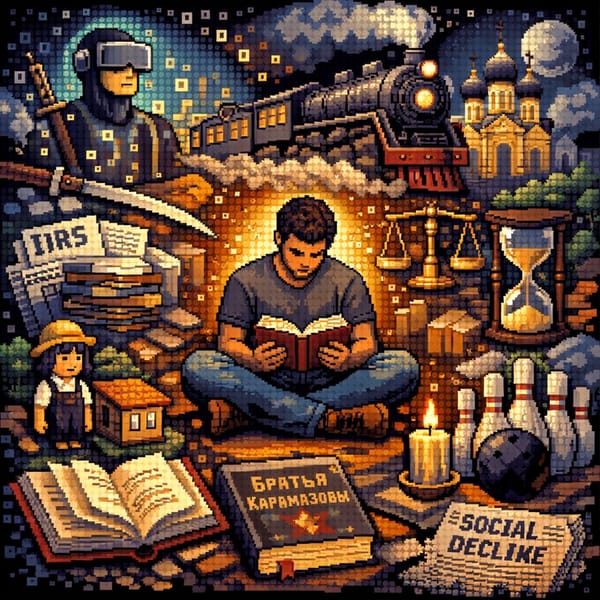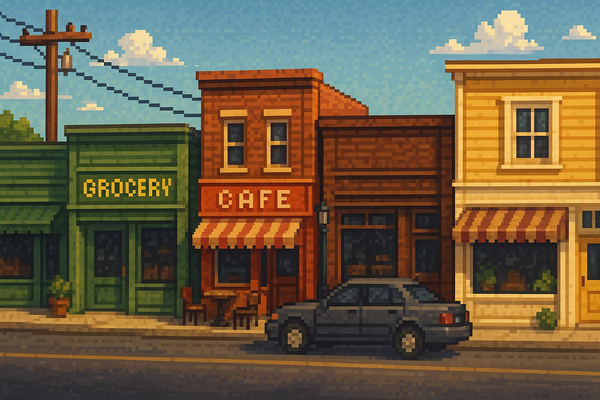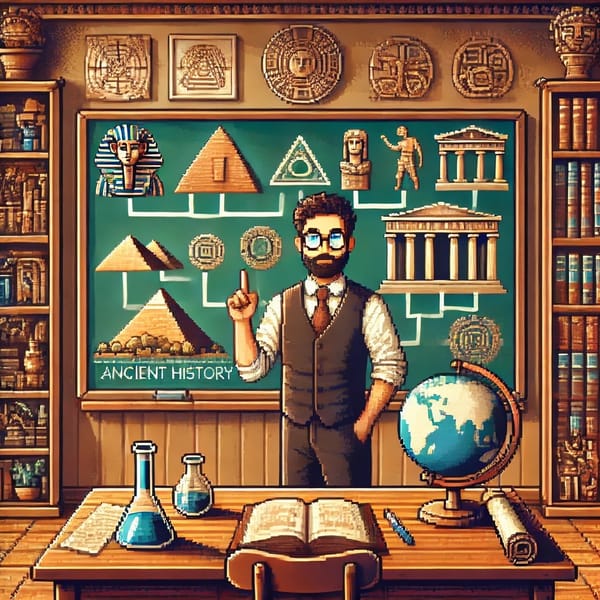The Low-Friction Life

I consistently do things I look back on later and think, “Why did I do that?" While that happens with big things occasionally, I am thinking about the small ones. I choose to watch a TV show I don't care much about instead of reading a book I am interested in or watching Monday Night Football just because it is on.
How many of my decisions do I choose versus have I been influenced or nudged into selecting?
Do I want to watch the next show on Netflix, or is the auto-play getting the best of me? If I had to click the following page on Instagram every few minutes, would I get sucked into scrolling for as long? Is the newsletter I am reading valuable, or did I subscribe to it long ago and now feel obligated to read it because it is in my inbox?
There are a few books on this subject: Hooked, Indistractable, and Stolen Focus[1], which I want to read soon, but I wanted to capture a few ideas first.
How did we get here?
Companies are incentivized to get us to use or consume their product, and technology makes optimizing engagement easy. In many cases, this is done using A/B tests. These are experiments run using two different designs, allowing people to interact with them and then determine if one had statistically significantly better metrics than the other. There is no way to know you are part of an A/B test, but this is a core part of product lifecycles at companies like Meta, so you have likely been part of one without realizing it[2].
The companies that run these tests argue that this is a better way to determine what people want; it is their revealed preference rather than their stated preference[3]. Therefore, it makes their product better to identify and fit our actual preferences. You may say you would prefer to stop watching Netflix, but if you don't hit the back button when it auto-plays the next episode, do you want to stop?
To quote the book Nudge, "for all their virtues, markets often give companies a strong incentive to cater to (and profit from) our frailties, rather than try to eradicate them or to minimize their effects.” The effects are apparent in social media, but consider the Oreo. It is very processed but perfectly balances crunchy, creamy, and sweet, making them nearly irresistible (or maybe that’s just me).
Nabisco would be thrilled if I doubled my Oreo consumption, but that would likely lead to a shorter and worse life. Similarly, Reed Hastings has said that Netflix’s competition isn’t other streaming services. It is sleep.
What should we do?
Others are not incentivized to stand up for our best interests, we must do it ourselves. I don't have the answer, but I am searching for it. Technology is optimizing to provide our primal desires while neglecting quality of life.
One angle is changing your environment by making the things you want to do easy and those you don't want to do hard. For example, I enjoy certain television shows, but they are rare. I still flip on the TV to see if a game is on or if there is something else interesting to stream, but if I don’t intrinsically want to watch it from the outset, I tend to find that time less satisfying. An easy way to adjust that behavior is moving the television into a less convenient room; for us, it is in our bonus room. Maybe I am just a simple person, but this is surprisingly effective.
Another example is laying out my running clothes the night before so it is easy to roll out of bed and run. However, I have yet to find a solution to the discouragement a 30-degree forecast provides, so this hasn't been particularly effective lately.
Conclusion
The fact that I have to hack my life to get myself to do what I want feels counterintuitive, but it feels necessary since the incentives of people selling products are not my long-term well-being. After adapting a few of these things, I don't feel as antsy as I did before, like my time was not well spent. After I work through the books I mentioned at the top, I will inform you of any additional findings.
- Amy recently read and liked this book.
- Even the New York Times A/B tests their headlines to drive engagement.
- David Ogilvy, a famous advertiser, supposedly once said, “The trouble with market research is that people don't think what they feel, they don't say what they think and they don't do what they say.”



